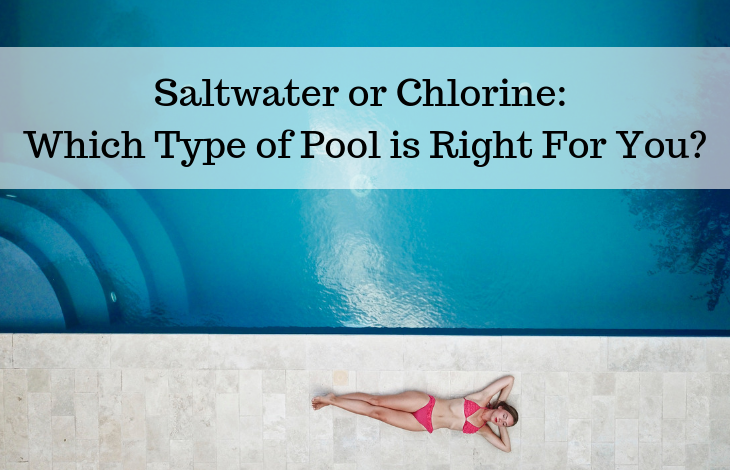For Australian homeowners, a swimming pool is a smart investment. Between the aesthetic appeal and the practical purpose, a pool is like a vacation destination in your backyard. It’s an excellent way to spend time with family and friends while enjoying the outdoors.
With modern above-ground designs, pools have become widely available and affordable. If you’re interested in buying a cheap swimming pool, you have many choices of different shapes, sizes and styles. You also have options for the filtration systems in your pool as well.
Swimming pools are typically maintained through two systems: saltwater and chlorine. Chlorine systems are more traditional and use chlorine tablets, while saltwater systems use chlorine created from sodium chloride (salt).
Before you build your pool, make sure you check out the pros and cons of each system.
Chlorine Systems
Chlorine is used in pools to make the water safe for swimmers, and it works by killing organisms that pose a health threat.
When mixed with water, chlorine forms compounds known as hypochlorous acid (HOCl) and hypochlorite ion (OCl-), which are toxic to pathogens. Chlorine tablets dissolved in swimming pool water have a residual effect that maintains the safety of the water. The chlorine system has a low initial cost because the pump uses less electricity, and the chemical does not cause structural damage to the pool.
Unfortunately, the chlorine system also has its drawbacks, as you probably know if you’ve ever swum in a pool with an uncomfortably high chlorine level.
Because of the water’s pH level and impurities, you will need to add a good deal of chlorine into your pool. As a result, swimming may become uncomfortable due to the high concentration of chlorine in the water and chlorine gas that hovers above the water. In these types of pools, many swimmers complain of skin irritation, eye irritation or respiratory problems.
The upkeep of the chlorine system can also be costly. To keep your pool well-maintained, you’ll need to purchase the chlorine regularly and store the tablets carefully.
Saltwater Systems
The saltwater system uses chlorine sourced from sodium chloride. Through electrolysis, the saltwater generator breaks down the salt solution to produce chlorine. The system produces chlorine at a steady level, making the overall concentration of the chemical lower than in a chlorine pool.
The water only has one-tenth of the salinity of ocean water, which is equivalent to the salt concentration of human tears. Because the saltwater system uses fewer chemicals, it is often considered superior to the chlorine system.
Swimming in a saltwater pool generally feels better because they don’t cause skin irritation, eye irritation or respiratory discomfort. Moreover, maintenance is more affordable since the system generates its own chlorine.
However, the biggest setback to owning a saltwater system is the price. First, it has a high installation cost because the system is designed to break down a salt solution and convert it into chlorine.
Second, saltwater can cause structural damage to the pool, so the system requires specially designed pools that can withstand salt exposure. The landscaping around your pool may also be susceptible to damage from the saltwater.
Lastly, the electricity bill on your saltwater system might be higher than with a traditional chlorine system.
With the pros and cons listed here, you’ll be able to decide whether a chlorine or saltwater system is better for your above-ground pool. Based on your budget and preferences, you’ll be sure to find an affordable system that’s right for you.



